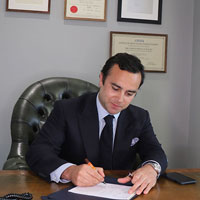How long do hair transplants last?
Hair loss is a common problem that affects both men and women. There are many different treatments available for hair loss, including hair transplant surgery. Hair transplant surgery is a procedure that involves moving hair follicles from the donor area of the scalp to a balding area. The transplanted hair will continue to grow and shed as normal hair does.
Hair from the donor area is resistant to dihydrotestosterone (DHT), and once it is moved to the balding area it retains this characteristic. Transplanted hair therefore will be there for the long term. One of the most important principles in hair transplant surgery for patients to understand is that grafts can only be placed where there is space to do so. That means that if you go on to lose your existing hair you may end up with an unnatural appearance.
The longevity of a hair transplant depends on a number of factors, including:
- The age of the patient – those who notice thinning at an earlier age are more likely to go on to lose more hair.
- Stabilisation of hair loss – patients who have stabilised their hair loss are more likely to have a successful hair transplant and a better long-term aesthetic outcome.
- The skill of the surgeon – a skilled surgeon will be able to transplant the hair follicles in a way that minimises the risk of damage and conserve your donor area. This will also help to ensure a more natural-looking result.
- Aftercare – patient’s must follow the surgeon’s instructions carefully after the hair transplant. This includes avoiding keeping the grafts safe and avoiding strenuous activity for the first two weeks.
This article on ‘What to expect after hair transplant surgery’ answers some of the most commonly asked questions after surgery.
In general, a hair transplant can last for a significant amount of time. Stabilisation of your hair loss is probably the most important aspect of ensuring good long term result.
Here is a more detailed look at the factors that can affect the longevity of a hair transplant:
Age
The age of the patient is one of the most important factors that affects the longevity of a hair transplant. It is inevitable that further hair loss will occur to some degree. It is more difficult to predict the extent of further hair loss in younger patients, which is why some clinics refuse to operate on patients under 25 years of age. We do not have an arbitrary cut off age for surgery, however we feel it is even more important in these cases that patients have realistic expectations and a conservative hairline is designed.
Type of Hair Transplant Procedure
There are two main types of hair transplant procedures: FUE and Strip FUT. FUE is a newer procedure that involves extracting individual hair follicles from the donor area and transplanting them to the balding area. FUT is an older procedure that involves removing a strip of hair bearing skin from the donor area and transplanting the hair follicles from the strip to the balding area.
FUE is certainly more popular in the UK at present, however both techniques have their pros and cons. One is not better than the other. A good surgeon will be able to offer both techniques and provide further guidance.
Skill of the Surgeon
The skill of the surgeon is another important factor that affects the longevity of a hair transplant. A skilled surgeon will be able to transplant the hair follicles in a way that minimises the risk of damage and conserve your donor area. This will also help to ensure a more natural-looking result.
Patient’s Aftercare
The patient’s aftercare is also important for the longevity of a hair transplant. The patient must follow the surgeon’s instructions carefully after the hair transplant. This includes avoiding strenuous activity for the first two weeks post op.
If the patient does not follow the surgeon’s instructions, it can increase the risk of damage to the grafts which can impact the results.
Other Factors
There are other factors that can affect the longevity of a hair transplant, such as:
- The patient’s medical history. Patients with certain medical conditions, such as diabetes or high blood pressure, may be at an increased risk of complications from a hair transplant.
- The patient’s lifestyle. Patients who smoke or drink heavily may be at an increased risk of complications from a hair transplant.
- The patient’s expectations. Patients who have unrealistic expectations about the results of a hair transplant may be disappointed with the outcome.
Overall, a hair transplant can last for a signifiant amount of time in the right patient if performed correctly. However, there are a number of factors that can affect the longevity of a hair transplant. It is important to talk to a qualified surgeon about your expectations and the risks involved before undergoing a hair transplant.
Additional Information
- The results of a hair transplant will not be immediate. New hair only starts to come through 3-4 months after surgery. It can take up to 12 months for the transplanted hair to come through and thicken up.
- Hair transplants are not a cure for hair loss. If you continue to lose hair, you may end up with an unnatural appearance and may need to have additional transplants in the future.
- Hair transplants can be expensive. The cost will vary depending on the number of grafts that are needed and the type of procedure that is performed.
If you are considering a hair transplant, be sure to do your research and talk to a qualified surgeon to decide whether you are a good candidate for hair transplant surgery. The BAHRS also has some good advice.
Christopher’s advice
One of the most important aspects of hair restoration surgery is patient selection, and this will have the most impact on how long your hair transplant will last. Stabilisation of your existing hair is essential for a good long term result. Ensure that you consult with a qualified surgeon who will not skip over this important aspect.
If you would like to discuss your hair loss and possible treatments please get in touch on 0207 770 6538 or reception@thedsouzaclinic.com

Mr. Christopher D’Souza MBBS MSc MRCS
Hair Transplant Surgeon & Medical Director
Talk to your Surgeon about your hair loss
Call us +44 (0) 207 770 6538
Mr D’Souza personally leads each new patient call and consultation.
What’s involved at a consultation?.






